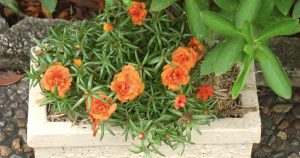A lot of people are taking renewed interest in the possibility of keeping a hive of bees. There is a great deal of awareness of the fact that bees in different parts of the world are suffering setbacks from pesticides and disease problems, and also that there is a new way of keeping bees in which the honey can be collected with a tap. In fact, the full story in both cases involves more than meets the eye.
Its certainly true that the widespread use of pesticides/insecticides called Neonicinitoids, (also known as Neo-nics) is having a calamitous effect, and its confusing that they are sold under various names. One of these chemicals is “imacloroprid” which is the active ingredient of sprays such as Confidor, and some very effective cockroach baits. Being systemic, imacloroprid can have a long lasting effect on the soil that transmits to the sap of plants, and the nectar that bees forage on. A gardener asked me why there were fewer bees around his passionfruit, and I soon found out that our largest retailer for the home handyman was still selling this product in their garden section.
So, we concluded that having sprayed his plants, he now has to wait many years until the residual effect dissipates. A similar chemical which was sold as “Gaucho” was banned in France after vast areas were affected, but you still buy Confidor and similar sprays, right here near Round Corner….bad sprays are just the beginning.
As for keeping bees in a box that requires no more than turning a tap to drain out the honey, people don’t realise what they are missing!
For me, beekeeping was a window onto sheer magic, when I was only about 11 years old. An elderly Englishman in Forbes encouraged my disbelief in what I was seeing, and in no time he gave me a box with which to get started. Next, he supplied a swarm that had come from one of these two amazing colonies he had in his back yard. Perhaps there was extra drama when we were to transfer the swarm to the box, and like most people, I had no idea how this could be done. Its actually remarkably easy, when you are not too hesitant.
The first key to success with bees is to be prepared to learn from the bees themselves, and to seek guidance from a knowledgeable beekeeper. Unfortunately, there is a lot of misunderstanding and complexity disseminated through beekeeping clubs, but I can’t do much about that. Often the first mistake people make is to go and buy the big white bee suit, and some heavy gloves. Its as if they are saying, “now you will do as I demand and you can’t object”.
Now, when they try to handle the bees, they are so hot and clumsy, its not surprising that the bees react. Far better to observe them carefully, and approach them calmly with a fair amount of smoke ( when they are sitting on honey), to see what they will do. Their first instinct will probably be to run into the hive, and cluster together until everyone makes up their mind what to do. You need to have a gentle plan. Maybe, the first thing to do is to lift up a frame and check their brood. See if there are small black beetles running around. These are called Small Hive Beetles, surprisingly enough, and they are a major nuisance. Their proper name is sp. athena Tumida, and they can infect the honey with a yeast that turns it putrid in no time.The bees simply leave in a hurry. Its a good reason for eliminating any feral bees that nest in the wall of your house, because the damage done is awful.
Arcadia is a great place to keep bees. So is just about everywhere else. You don’t need a lot of space, just an area where the bees will not respond to fluorescent lights at night, or the proximity of vibrations from mowers. Its fairly easy to recover the cost of setting up within the first year, all going well. I suggest that you need about $450 to start out with two colonies, so you can compare the progress of one with the other. You really need to understand that a feral swarm must be given a NEW QUEEN, so these bees will be naturally gentle to work with. Sometimes you can be lucky, but how do you know you have avoided disease? Many good queens come from Queensland, but I get most of mine through the post from Blaney. Careful genetic selection results in queens that are a pleasure to work with, and her genetics will affect all the bees in the hive after about 8 weeks when the old bees die off. A queen usually costs about $30.
There is so much to tell you about starting right with bees. You could read my articles online, in WIKIHOW, which are popular. You might even ask the editors of this magazine if we could have another article next month, or perhaps a local beekeeping day.
In the meantime, I can be contacted by email, at [email protected]. Its always a pleasure to meet people who are interested in bees, and especially because it teaches kids about the need to care for all creatures, including each other and their parents.








